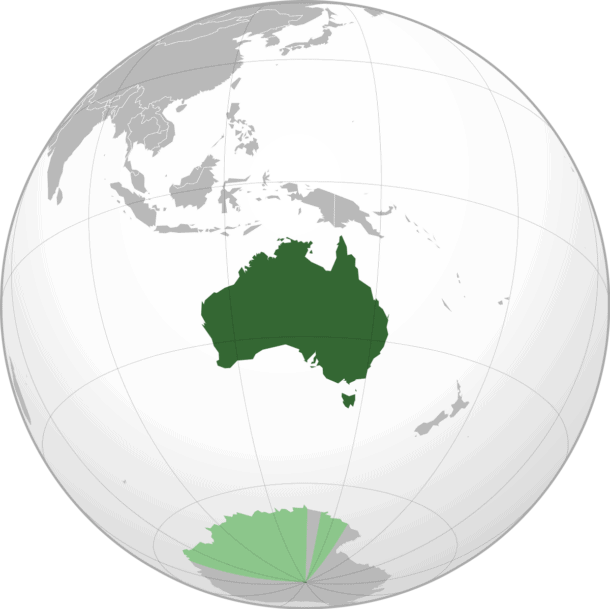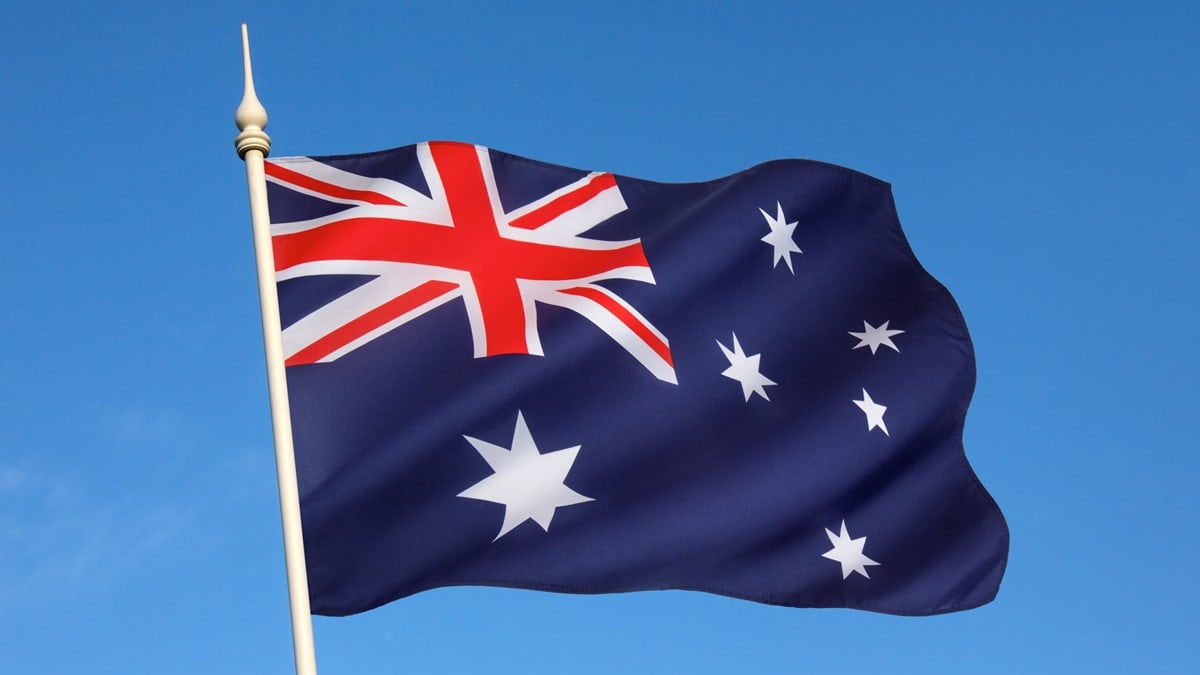Estimated reading time: 8 minutes
Characterised by golden beaches, year-round sunshine, and miles of open space, Australia has long been a draw for expats from around the world looking for a relaxed pace of life, beautiful scenery and a warm, friendly society that is liberal and multicultural.
Australia has over 22,000 miles of coastline, with a healthy outdoor lifestyle where camping, fishing and beach sports are popular, along with exploring the national parks – there are over 500, with robust protections in place to safeguard Australia’s natural heritage and wildlife.
The economy is stable and strong, highly skilled or professional expats can often qualify for expedited visa routes, and although living costs are higher than in the UK, average salaries are also higher, and the country is frequently ranked as having the most liveable cities in the world.
Most foreign nationals moving to Australia choose to live in one of the major cities. Still, as the number of expats migrating to the country has grown, the visa criteria have become stricter, making residence by investment an appealing alternative for those who do not qualify through the rigorous points-based entry system.
Table of contents
About Australia
Currency
Australian Dollar (AUD)
Capital
Although many foreign nationals assume it is Sydney, Canberra is Australia’s capital. The city has a population of just under 400,000 people and is the eighth most populated in the country.
Towns and cities
In order of population size, Sydney, Melbourne, Brisbane, Perth, and Adelaide are the largest cities in Australia.
Population
25.69 million
British expats
Around 1.2 million UK nationals live in Australia – the largest migrant community in the country.
Languages
The main language in Australia is English, but there are also over 150 dialects spoken by Aboriginal and Torres Strait Islander people.
Climate
The climate in Australia is primarily hot and dry, with the vast majority of inland areas semi-arid with desert conditions throughout the outback. Along the coastlines, the weather becomes more diverse, with grasslands and a tropical climate to the north and milder heat in the southeast and southwest.
Seasonal highs can reach up to 53°C (127°F) and dip as low as -23°C (-9.4°F), although the coldest weather occurs in mountainous regions with the highest elevations. The hottest months are between December and February, with winter from June until August.
GDP
Australia’s Gross Domestic Product (GDP) is $1.553 trillion (USD – £1.25 trillion), with a robust financial sector, a stable economy and primary industries including renewable energy, construction, agriculture, mining and tourism.
Map

Australia is a large country in the southern hemisphere, with an expansive landmass and low population density. Surrounded by the Pacific and Indian Oceans, its nearest neighbours are Papua New Guinea to the north and New Zealand to the east.
Residence By Investment Options
There are several ways to apply for Australian residency, with investments beginning at $2.5 million (£1.34 million) through the Investor Stream. Expats must live in Australia for two of every five years or have other ‘significant ties’ to retain residency eligibility.
The Business Innovation and Investment Program has four visa routes as follows:
- Business Innovation Stream applicants are assessed on a points basis. They must have an established business or profession with an annual income of $750,000 (£402,585) per year and net assets worth $1.2 million (£644,136) or above.
- Investor Stream applicants are also awarded points and must contribute $2.5 million (£1.34 million) to the economy through an Australian investment fund, with a minimum residency of two years and investments retained throughout.
- The Significant Investor Stream has reduced residency requirements of 40 days per year, with an investment of $5 million (£2.68 million) into a qualifying investment fund.
- Entrepreneur Stream applicants can apply for residency based on an Australian territorial or state government endorsement and must live in the country for two years.
All four streams offer permanent residency after three years, provided the foreign national maintains their investment, achieves the minimum business turnover thresholds and complies with minimum stay requirements.
An additional and separate visa initiative called the Global Talent Independent Program is open to prospective expats with significant achievements and prominence in their sector and where they can demonstrate that they would benefit the Australian economy.
Travel
Expats with residency status in Australia can travel to and from the country freely and, within five years, may be able to apply for full citizenship. An Australian passport allows visa-free travel to Hong Kong, New Zealand, Singapore and South Africa, among other countries.
Timescale
Depending on the residence by investment visa you apply for, processing times can take up to 12 months.
Visas
British nationals require a valid visa for any travel to Australia, whether a short-term visa for business trips and tourism through the online eVisitor system or a longer stay visa or work permit.
The eVisitor visa is valid for up to three months and is linked to your passport rather than a paper-based visa form or a physical card. Other visa categories include the Working Holiday Visa, valid for up to one year, and the Student Visa and Permanent Residency Visas, each with varied conditions and requirements.
Discover more about Australian visas, residency and conditions.
Tax
The Australian Taxation Office applies a ‘resides test’ to determine whether a foreign citizen is considered a tax resident or a non-resident. Factors such as the amount of time you spend in the country per year, your primary income source and the location of your main residence help assess where you are taxed.
Foreign nationals living long-term in Australia or with permanent residency status will likely be tax residents. They must declare and pay taxes on their worldwide income and assets within Australia.
Need Help with your Finances?
Cost Of Living
Everyday living costs in Australia are higher than in the UK, with overall expenses 23.1 per cent higher and rental prices around 27 per cent more expensive. However, much depends on where you live since renting a luxury apartment in a CBD in Sydney, Melbourne, or Perth is considerably more costly than a rural property.
Average incomes in Australia offset the higher cost of living, with an average national monthly net pay, after tax, of $5,034 (£2,698) compared to £2,295 in Britain – an increase of 17.5 per cent. The average family of four spends $5,657 (£3,032) per month, excluding rent, and an individual around $1,604 (£869).
Property
Foreign citizens living in Australia with a valid visa can purchase a home but require permission from the Foreign Investment Review Board. Note that property acquisitions do not count towards investments made as part of a residence by investment application.
Once an expat gains permanent residency status, they no longer require permission and can purchase a property freely without restrictions.
Another option is to rent a property, with apartments and condos most common in the cities, and larger houses with generous gardens more prevalent in the suburbs and rural regions.
| One-bedroom city centre apartment | $2,295 / £1,232 |
| One-bedroom apartment elsewhere | $1,780 / £955 |
| Three-bedroom city centre apartment | $3,762 / £2,030 |
| Three-bedroom apartment elsewhere | $2,635 / £1,414 |
View properties in Australia listed for sale on Rightmove.
Healthcare
Permanent residents and Australian citizens are entitled to access the public Medicare healthcare system, comprising public and private facilities, including hospitals, pharmacies, doctors and clinics.
Expats who are not permanent citizens must cover the cost of their own healthcare, and private health insurance is often a mandatory requirement for most visa categories.
Australia Residence By Investment FAQ
Permanent residency in Australia provides varied travel freedoms, and a permanent visa and grant notification letter will detail your right to re-entry, which is normally unlimited for the first five years. After that, if you leave Australia without a Resident Return Visa, you can lose the right to return to the country as a resident.
Australian immigration is subject to strict quotas, and because applications normally exceed annual quotas many times over, applicants are assessed on a points-based system, with the highest scoring granted a visa.
There are countless reasons a residence application could be rejected. Still, for residence by investment purposes, the most common is a lower points score or lower available investment capital than other applicants.
The fastest non-stop flight between Britain and Australia travels to Perth and takes around 17 and a half hours. Most travellers have a stop-off along the way at Singapore or Dubai, and the average journey time is roughly 18 to 23 hours, depending on the stop-over duration between flights.
The currency is the Australian Dollar, abbreviated to AUD.
Yes, UK citizens need a visa to visit Australia. An eVisitor visa is a short-term digital visa valid for up to three months and available for tourism and business-related visits. There are multiple visa categories for investors, students, professionals and business owners, each with different eligibility requirements.
Related Information
Below is a list of related articles you may find of interest.
Resources
- Australian Government – Official website of the Australian government, providing information on immigration policies, residency, and visas: https://www.australia.gov.au/
- Department of Home Affairs – Australian government department responsible for immigration and border protection: https://immi.homeaffairs.gov.au/
- Australian Taxation Office – Official website of the Australian Taxation Office, providing information on taxation for residents and foreign nationals: https://www.ato.gov.au/
- Department of Foreign Affairs and Trade – Australian government department responsible for foreign affairs and international relations: https://www.dfat.gov.au/
- Australian Bureau of Statistics – Official website of the Australian Bureau of Statistics, providing data and statistics on various aspects of Australia, including population, economy, and social indicators: https://www.abs.gov.au/
